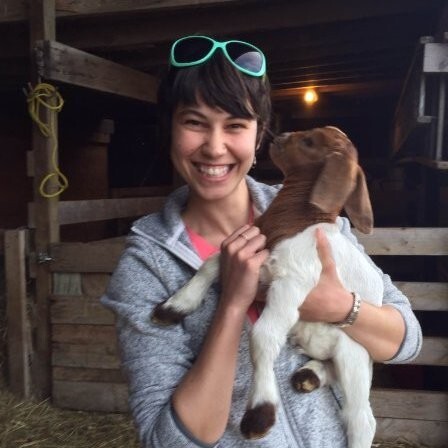
Meet Mallory Casperson, CEO + Founder of Lacuna Loft, a 501(c)3 nonprofit that “encourages, empowers, and connects young adult cancer survivors and caregivers around the world, 24/7 through digital health survivorship programs”.
Mallory was in graduate school when her mother was diagnosed with cancer. During her last days, she served as the primary caregiver for her. Shortly after her mother died, Mallory was diagnosed with the same. Fortunately, with the right treatment and the guidance of her doctors, she was declared cancer-free. But the anxiety didn’t part ways with her, with the disease. Her peers couldn’t understand what she was still going through as often with the cancer-free declaration the patient is expected to be ‘normal’ again. Things didn’t get back to normal very easily, even after two years, and she couldn’t get the proper support. This was her inspiration behind starting Lacuna Loft.
Casperson notes there is data that young adults aged 18-39 years are not used to cope with mortality and that their peers are not there to help them. That’s when they’re getting new jobs, touching new milestones, starting a family, and dating. With cancer, everything is interrupted because no one plans for such situations. Mallory was going through the same thing. To give an outlet to her emotions, she started writing blogs to connect with young survivors who were feeling the same. She focused on lifestyle changes that happen during cancer and how can one adapt to them. From drawing new eyebrows, looking stylish despite being so cold after spending six hours in the infusion center getting chemo to facing death for the first time, and moving on with new relationships, she sought to cover all the topics that could help a fellow cancer survivor.
She realized that young adults needed a safe space to voice their concerns to people who could relate to and understand them. But Mallory was an engineer by trade and didn’t have the knowledge and resources to start a nonprofit. She has a Ph.D. in Aerospace engineering from the University of Illinois. She approached many non-profits who were already running support programs, but none of them focused on young adults. They either were not interested or didn’t have the funding to start a whole new program. That’s when Mallory decided to take the reins into her own hands. After deep research on google and Nolo websites and subscribing to a non-profit fundraising blog, she launched Lacuna Loft in 2013 with the help of her mother-in-law. Through her research, she found out what all the other non-profits were doing in the sector and how she can be different and add new ideas of her own.
Casperson tried to find a unique name that would resonate with the idea of the non-profit. Lacuna means a “brief pause or a hiatus” and loft means a “space”, where the survivors can come and communicate with each other. Therefore, Lacuna Loft is a safe space that “provides online wellness support + resources, lifestyle encouragement, and a peer support community necessary for young adults to overcome their challenging health and life circumstances, and thrive”. They are always experimenting and tweaking the activities to make sure they meet the needs of the survivors. The nonprofit is constantly evaluating programs and trying to make them better. Their programs have always been online to make them accessible to anyone without having to go through the pain of travelling. This also served as an advantage during COVID, and they didn’t have to pivot, as they were already operating virtually.
Mallory is overwhelmed with the fact that an enterprise that once only existed in her mind is now out there supporting people. She is always looking for ways to stand out from other non-profits. As most support groups are now online, she often asks herself what Lacuna Loft can do to fulfil the needs of the participants. They wish to make their programs valuable to them survivors and assist them in every possible way.